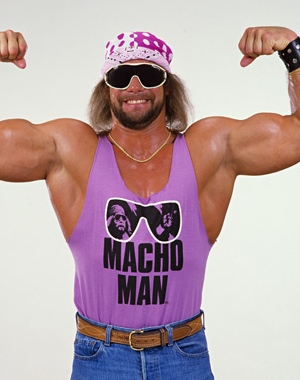|
|---|
Monday, May 19, 2008
Anyways it is characteristic of humans to have a sad, vague and wistful longing for an ideal.
Lin Yutang
This simple acknowledgement of our human condition says it all. The statement also sums up a mood that dominates my consciousness on a reoccurring basis. When I think of my ideals I want to sink into oblivion because, alas!, I am so far from achieving them.
At least that is the way it seems. What are my ideals anyways? And why do my old, habitual plans of action fail to translate those dreams into reality?
I am writer. My ideal is to write without inhibition. My ideal is productive creativity. My ideal is to write for an audience. My ideal is to write for people who understand and appreciate my work. But most of all my ideal is to be a productive writer.
To write frequently.
In the past I have approached this ideal by disciplining myself. Getting up early in the morning and writing. But the very structure I impose on myself seems to undermine my efforts. I am a disciplined person to begin with and so this strategy of discipline does not work well for me. Perhaps the very notion of a strategy is counterproductive.
We cannot schedule the fountain of creativity. We can only bid our time until the ground beneath us quakes and the subterranean juices bubble up.
I am learning to align myself. There is an undercurrent that I must abide to. The invisible. The intangible.
I am not talking about voluntary attention but involuntary attention. The rational/conscious mind forces itself to concentrate on a task. The "irrational" or childlike mind concentrates effortlessly. Look at children playing in their imaginary worlds with their toys. They are totally absorbed. That is how I want to be with my creative work. Like a child.
I do not wish to exert effort if it is not necessary. I believe I am entering a new phase of my writing life. And it shows in how I conduct myself on my days off.
In the past, in order to achieve my ideal of productive creativity, I have dedicated the early morning to writing. My purpose behind this was completely rational. The early morning is the best time for higher-level functions of the brain. In addition, I thought that if my purpose is to become a writer than I should do this activity first thing. It should be my priority.
But along this path I have come up against many challenges. In the morning I do not have the motivation to work on my writing. Writing feels like a chore in the morning. There is the elusive gap between my longing to be creatively productive and the physical act of sitting before a computer screen. The moment to work is here--now what?
I realize that the muse is a capricious lover. She must be wooed at night.
I read Lin Yutang's description of the human being as a scamp. Listen how he characterizes the human: "a playful curiosity, a capacity for dreams, a sense of humor to correct those dreams, and finally a certain waywardness and incalculability of behavior."
Well, this description explains why I have been at odds with myself for so long. Why I long for my ideal while simultaneously brooding in my inability to fully harness my creative powers through a regiment of self discipline.
Before I was also a Buddhist. I meditated twice daily for five years--but, I digress.
I am trying to show you how my longing for my ideal hasn't changed. I still long to be creative and productive but I realize something about myself and the human mind. Lin Yutang is my mouthpiece:
"The human mind is charming in its unreasonableness, its inveterate prejudices, and its waywardness and unpredictability."
He believes that it is not rationality which makes us most human but irrationality:
"I should hate to see a world in which we are all perfectly rational beings."
Therefore, it is the very acknowledgement of my waywardness, my irrationality, that allows me to understand and transcend my waywardness, my irrationality.
This is how to harness the supremely wayward creative spirit. It is a daunting task. Many give up along the way. Too elusive. Too subtle.
But those who harness the spirit become like children playing in their imaginary worlds. Without expending the least amount of effort. No thinking. Just playing.
This is not only true of the artist I wish to become. But of the person also. Like a child fumbling in the world, curiously fumbling.
And so we can become more in touch with our own true nature, allowing the irrational. On my day off I no longer structure things. I don't meditate anymore. I don't exercise. I don't force myself to do any-thing, including writing. I am more of a Taoist than a Buddhist.
My creative spirit craves life, surprises, mysteries. In the true tradition of the scamp, I wander. I am peripatetic. I go into coffee shops and read for awhile from the Book Review. Why? Because it makes me happy. I am enjoying my life. Opening and closing my wings, in sheer delight. I fall asleep. I wake up. I go for a bite to eat. I go to the library. I read there. I write. The writing comes out of me. As water comes out of a deep well in the ground. No drilling. All natural. I write. And I am more productive and creative than I have ever been.
The writer is a catcher of dreams. It is a sensitive business, catching dreams. Once you design a system or a formula to catch dreams, you fail. Because dreams are like butterflies. They will not be lured into man-made nets unless you are capable of becoming a butterfly yourself.
And then I think of my project, The Novel of Life, and I think of my investigation of my alter ego, Lethe Bashar, and how Lethe is the archetypal Scamp.
Lethe is acting unconsciously. He is acting out human nature without knowing it. Lethe is animal creativity. Wanton imagination. I cannot approach this project as I've done in the past. I must become a scamp--like Lethe.
Except this time I will become conscious of my creation.
Able to understand him and me.
Able to understand this irrational urge
To wander mentally and physically.
Thus I will not fight against my true nature. I will follow the ebb and flow of unpredictability, this waywardness no one can control . . .
Labels: creative, ideals, productive














